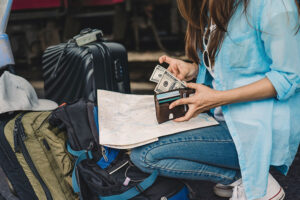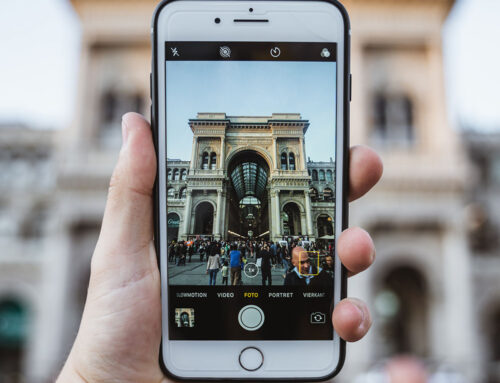Traveling can be a stressful experience, especially when it comes to navigating airport security and getting to your destination once you’ve landed. But the annoyances and potential risks do not stop once you’ve checked in to your destination.
Falling the victim to a scam can happen in almost any country.
Whether traveling on business or recreationally, being proactive and learning some travel safety tips can help keep you out of trouble. The reality is that travelers are often targeted as they are seen as easy to fool. Here are some of the most common scams that travelers may encounter abroad, and suggestions on how to avoid them:
- Distraction Scams: A common scam where someone will try to distract you by creating a commotion or asking for directions, while an accomplice steals your wallet, phone or other valuables. Always do your best to take out only what you need, and keep these items tucked away on your person. Be mindful of who is standing to close, or appearing to give you too much attention, or too adamant about you facing a certain direction. These are common misdirection tactics.
- Pickpocketing: Tourists are often targeted by pickpockets in crowded areas such as public transport, tourist sites, or markets. This is always a focus when we work with travel security for students abroad. Since it is very difficult to spot who is a pickpocket and who is not, the best policy is to never give cash to those begging, and always keep your valuables secure and hidden on your person. The best policy is to ignore and keep walking, while being hyper-aware of your surroundings.

- Fake Merchandise: Fake merchandise is often sold to tourists, such as knockoff designer handbags, watches, or electronics. In crowded markets, you can also find yourself swarmed by vendors peddling such goods. This is an ideal time for pickpockets too, so stay aware. Keep your valuables tucked away and in zipper compartments. Be aware of “once in a lifetime deals” – for instance, unless it’s a reputable jewelry store, assume the ring is probably not the quality it is being sold to be.
- Taxi Scams: Some taxi drivers may take advantage of tourists by taking longer routes or charging higher fares. Always agree on a fare before getting in the taxi, and make sure to confirm that the meter is working. Also, do your best to not sit in the front of the vehicle, and always be willing to find another driver. If you have any kind of itinerary monitoring software, cab rides to and from the airport is a good time to check-in.
- Counterfeit Currency: Tourists may be given counterfeit currency when exchanging money or receiving change. Keep an eye on the look and feel of the local currency, compare if suspicious.
- Tuk-tuk Scams: Common in Southeast Asia, some drivers of these three-wheeled cabs will offer to take you all around the city to get great deals on goods. The cost may be so low, it is hard to say no! You may even feel pressured to purchase these goods when at the establishments. If it sounds too good to be true… it probably is! The best advice is to follow your instincts, and secure transportation through your hotel’s main desk, or employer, whenever possible. Remember, if you feel like your safety is in jeopardy, contact local police or get into another taxi as soon as possible.

- Fake Charity Scams: Tourists may be approached by someone claiming to be collecting money for a charity, but the money often never goes to the intended cause. Be wary of any benevolent organization that approach you on the street or in markets, especially if they don’t have a lot of informational documents to present about their cause.
- Card Skimming: Tourists may have their credit or debit card information skimmed when using an ATM or paying at a restaurant or shop. It is best to let your bank know ahead of time where you will be traveling, and closely monitor transactions while abroad. Never give out your pin number and reports suspicious activity as soon as you notice it.
- Rental Car Scams: Tourists may be charged for damages or fees that were not their fault or be sold unnecessary insurance coverage. Always take photos of a vehicle and document any previous damage before accepting the keys.
- “Closed” Attraction Scams: Tourists may be told that a popular attraction is closed, and then offered an alternative or guided tour at an inflated price. Be persistent, and head to the physical ticket counter to confirm for yourself. If all else fails, calling the attraction’s office ahead of time is a good idea too.
There are many different tourist scams out there. Beyond these suggestions, it’s always prudent to consider investing in a tracking app with an international panic button. This is a great asset to have while traveling abroad, especially in the event you encounter scams like the ones mentioned above. IMG GlobalSecur has decades of experience in the security industry. Our team of safety experts stands ready to help you alleviate travel fears with our corporate travel security services including FoneTrac, our safety app backed with 24/7 on-call security professionals that can assist you in staying safe while anywhere overseas.


